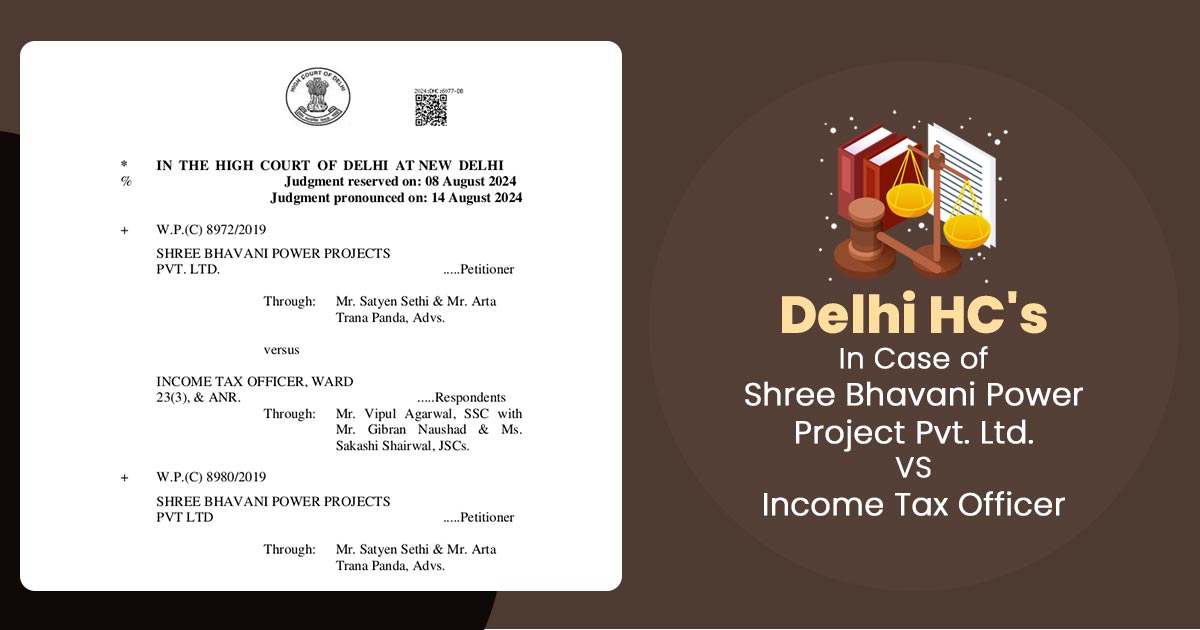
The Delhi High Court, the deduction u/s 80-IA(7) of the Income Tax Act cannot be denied for the mere failure of the taxpayer to digitally file an audit report.
It was noted by the bench of Justice Yashwant Varma and Justice Ravinder Dudeja that the audit report was duly provided to the AO and was available to be scrutinized and analyzed via that authority at the time of the assessment proceedings, the provisions of section 80-IA(7), as it stood before the revisions started in 2020, shall be considered to have been fulfilled. In any case, a failure to digitally file that report could not be countenanced to be fatal to the claim that may be laid in terms of Section 80-IA(7).
The applicant furnished a Return for AY 2013–14 on September 30, 2013, claiming deductions as per Section 80-IA(4)(iv)(a) of the Income Tax Act. A tax audit report in Form 3CA u/s 44AB was filed electronically on September 30, 2013, along with the Return, and the audit report in Form 10CCB was filed manually before the Assessing Officer on February 12, 2016.
The AO concluded the assessment as per Section 143(3), permitting the deductions claimed by Section 80-IA, which becomes evident from a perusal of the assessment.
The department has the opinion that Rule 12 of the Income Tax Rules, 1962, which came to be revised by the Income Tax (Seventh Amendment) Rules, 20135, w.e.f. April 1, 2013, introduced the provision of an online submission of the audit report in Form 10CCB.
The applicant was not able to point out the failure to digitally provide the report, and the same shall comprise a non-disclosure of the correct and complete facts. The reassessment notice u/s 148 came to be issued.
The reassessment initiated in terms of notices issued u/s 148 of the Income Tax Act, 1961 has been contested by the applicant/taxpayer.
The problem was that the failure on the applicant’s part to electronically upload Form 10CCB along with its income return and as per the time durations stated u/s 139 shall comprise an effective foundation for the reassessment measure being initiated.
It was mentioned by the taxpayer that the digital filing of the audit report including the income return was the only procedural and directory and that the regulatory prescription has been substantially complied with.
It was argued by the department that the regulatory prescriptions in Section 80-IA(7) are obligatory and the measures initiated u/s 148 are therefore justified.
While permitting the petition the court ruled that the reassessment measure for AY 2013-14 being beyond the maximum window of 6 years, would therefore falter and fail.
| Case Title | Shree Bhavani Power Project Pvt. Ltd. VS Income Tax Officer |
| Citation | W.P.(C) 8972/2019 |
| Date | 14.08.2024 |
| Counsel For Appellant | Mr. Satyen Sethi Mr. Arta Trana Panda |
| Counsel For Respondent | Mr. Vipul Agarwal, SSC with Mr. Gibran Naushad, & Ms. Sakashi Shairwal, JSCs |
| Delhi High Court | Read Order |









